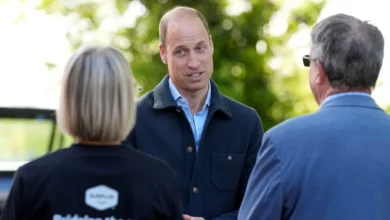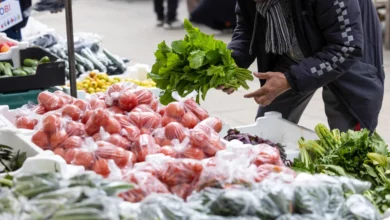London–Economic news from Europe is seldom good these days, and Britain is no exception. The government is currently embarking on a hugely unpopular round of spending cuts and austerity measures aimed to slash public debt. Financial turmoil in the UK may seem far removed from Egypt’s economic landscape, but this is not so.
The UK is the largest non-Arab investor in Egypt, indeed second only to Saudi Arabia. The Commercial Office of the Egyptian Embassy in London cite around 900 UK companies active across a range of sectors, especially in oil and gas, but also spanning tourism, telecommunications, education and banking.
Ashraf Mishrif, senior lecturer in Political Economy at King’s College London, commented that “the high levels of growth, the consistency, and the pattern of British investments in the country all testify to the UK’s deep commitment and enduring relationship with the Egyptian market.” This dates back to the early 1970s, and reflects progress in Egypt’s investment environment.
But due to the global crisis, the UK's outward investments have declined, with a noticeable effect on Egypt. Mishrif recorded “divestment of US$100 million and US$50 million by British companies from the Egyptian manufacturing and finance sectors respectively in 2008.” Other British companies have downsized operations or stopped re-investing their profits in the economy.
However, the property market in Sinai continues to be a magnet for British investors, seeking more for their money and guaranteed rental returns. This boom is linked to the ever-expanding tourism industry, whose revenues leapt by 17.6 percent to $5.58 billion in the first six months of 2010, according to Tourism Minister Zoheir Garrana. The economic crisis has not had the negative impact on Egypt that it has on European tourist destinations such as Greece, and instead it has grown in popularity as a holiday destination for Europeans. The UK’s Foreign and Commonwealth Office (FCO) estimates around 1.5 million British nationals visit Egypt every year.
A step beyond the package holiday to Sharm El-Sheikh, a staple for British travellers these days, is the second house market. Steven Worboys, managing director of property experts Experience International, points out: “Over 7 million foreign tourists visited Egypt in the first half of this year … this influx is generating significant demand for accommodation with savvy second property owners cashing in and renting their homes on both long and short term lets.” This is a market that many Brits, having visited the Red Sea resort as tourists, want a piece of.
Experience International’s Egypt specialist Shaz Yaqoub explained that an increasing number of Brits are buying properties in this region, and many are even relocating there–splitting their year with six months in the UK and six months at the Red Sea. It is a popular tourist investment location for both financial and lifestyle reasons. Comparably low prices, high rental returns and capital growth means investing in a Red Sea property makes good financial sense. The industry is growing at such a rate that Yaqoub asserts “it would never be the case that you would get below what you paid … people are pumping money into Egypt because they know it’s safe.” Compared to the chaos and uncertainty in housing markets elsewhere, this is a key selling point.
Add to these financial incentives the lifestyle benefits of low costs of living, a four and a half hour cheap flight back to the UK, low levels of crime, guaranteed sunshine and beautiful beaches. With another bitingly cold winter setting in this side of the Mediterranean, the appeal of winter sun is another compelling draw to investment in beach-side property.
In fact, the arctic weather facing the UK this winter has upped the demand for another rather unexpected commodity from Egypt–marine salt used to grit roads to melt the ice and make them safe for cars and pedestrians. Ian Mercer, managing director of Online Rock Salt, supplies salt to schools, hospitals, prisons and other public and private outlets in the UK. He imports around 81,000 tonnes of salt per year, around 50% of which comes from Egypt. Egypt is his country of choice partly because the climate ensures a high quality product, but also because it is “effectively duty-free if you buy with a EUR.1 form.” This form is part of a European Union Association Agreement, and acts as an economic incentive that makes it €2.80 more competitive per ton to import salt from Egypt than from somewhere outside this framework.
A spokesman for the Egyptian Embassy’s commercial office explained that, despite the financial crisis, “bilateral trade between our countries hit a new record in 2009, exceeding 1.6 billion pounds sterling,” while the FCO reported an increase in exports (of 4%) and imports (of 7%) to and from Egypt for 2009. And with a long hard winter ahead, salt is one area where business is sure to be booming.
September 2010 figures show a 4 percent increase in UK exports to Egypt and a 6.5 percent increase in Egyptian exports to the UK over last year’s rates.
General political stability in relations between the two countries caters to improving trade relations. But some concerns remain in investors' mind.
Egypt's political risk profile is a concern for foreign investors, especially following the turmoil of the recent parliamentary elections and an uncertain political future. The Middle East and Africa Monitor (part of Business Monitor International) assessed Egypt in 2011 to be “entering a critical stage” in particular as “the country attempts to resolve the still uncertain succession question in light of President Hosni Mubarak's faltering health.” Furthermore, “the internal power struggle among the 'old' and 'new' guards within government is the key risk to watch, and we expect that even under a best-case scenario, economic reforms will slow.”




